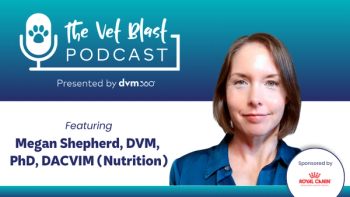
Two studies focus on gastric ulcer treatments in horses
One veterinary investigation warns against compounded omeprazole; the other shows a positive effect for a polysaccharide blend.
Shutterstock.comTwo recently released studies shine a spotlight on horses' guts-specifically, treatments for gastric ulcers, a common equine condition. Here's a closer look.
Caution with compounding
Mark A. Wallace, DVM, MS, DACVIM (LA), of Carolina Equine Hospital in Browns Summit, North Carolina, presented a poster at the 2017 ACVIM Forum titled “Radiographic evaluation of compounded and illegal over-the-counter omeprazole products.”
For the study, Dr. Wallace took radiographs of compounded and non-FDA-approved omeprazole paste products and compared the results with an FDA-approved product: Gastrogard from Boehringer Ingelheim. “All compounded and over-the-counter products that were studied had clearly visible incomplete fill and air pockets,” the poster's conclusion section reads. “Several of the products also showed variability in homogeneity. Gastrogard Paste syringes had complete fill, no air pockets and were homogenous.”
Here are some of the images:
Without an FDA-review process to ensure product quality, veterinarians and horse owners are likely to encounter problems with compounded and illegal OTC omeprazole paste products for horses, the author concludes.
A conflict of interest disclosure on the poster indicates that the research was funded by Merial (now Boehringer Ingelheim) but that “the sponsors of this project have played no role in analysis of results and have had no editorial influence over the written text provided here.”
Promising polysaccharides
Hagyard Equine Medical Institute, a private equine veterinary facility in Lexington, Kentucky, recently found in a study that a polysaccharide blend reduced gastric ulceration in active horses. The
In the investigation, 10 horses underwent gastroscopy for diagnosis and scoring of existing ulcers, according to a release from Hagyard. Each participant was administered 1 to 2 oz of a polysaccharide blend for the duration of the study. Results showed that a polysaccharide blend of high-molecular-weight hyaluronan and schizophyllan, a beta-glucan, administered daily for 30 days demonstrated ulcerative healing.
Of the horses treated with the blended therapy, 90% showed complete resolution or improvement in ulcerative areas, increased appetite, weight gain and positive behavioral changes.
“Ulcers can be found in as many as 80-100% of horses,” says Nathan Slovis, DVM, DACVIM, CHT, director of the McGee Medical Center, a division of Hagyard Equine Medical Institute. “Our objective in this research was to determine whether a natural treatment would help in the healing process. From the data gathered, we were able to determine that horses can be successfully treated with a naturally safe and effective polysaccharide blend of hyaluronan and schizophyllan.”
Newsletter
From exam room tips to practice management insights, get trusted veterinary news delivered straight to your inbox—subscribe to dvm360.




